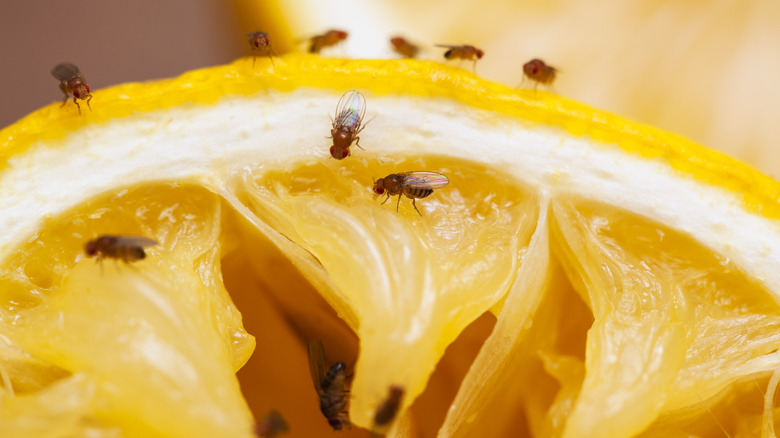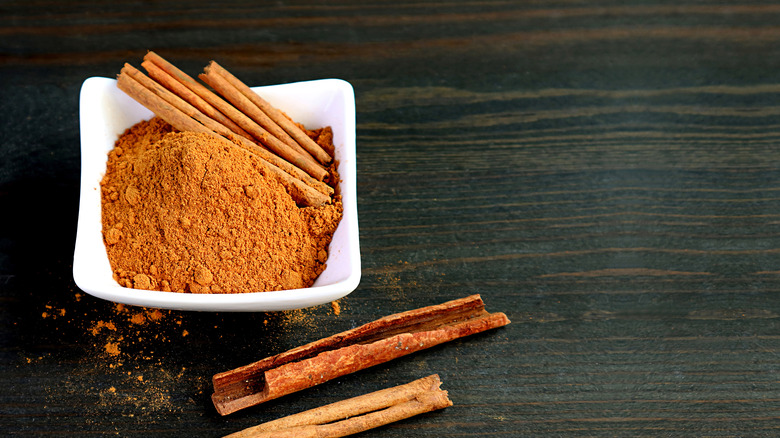The Common Ingredient That Keeps Pesky Fruit Flies Out Of Your Kitchen
Fruit flies are some of the smallest yet most bothersome common kitchen pests. Maxing out at only 4 millimeters long, these tiny flies are attracted to yeast, sap, and the sugar found in fruits and fermented liquids like beer, wine, and apple cider vinegar. The fruit fly — more scientifically known as Drosophila melanogaster — has a pretty large palette and will be drawn to nearly everything in your kitchen, from a glass of wine to decaying vegetables. Cinnamon sticks, however, are an exception.
Like cloves and other highly aromatic herbs and spices, cinnamon sticks contain eugenol, a natural chemical compound responsible for producing strong scents. Unlike the sweet treats that cinnamon is often added to, the sticks alone have a smell that repels fruit flies rather than attracts them. The scent not only deters fruit flies, but it can also disrupt their pheromones, which insects secrete to communicate with one another. If you're tired of all the buzzing, here is how to pull this hack off.
How to incorporate it
To incorporate this hack and evict fruit flies for good, you will first need to identify the most problematic areas of your home. Do you have a bowl of fresh produce sitting on the kitchen table collecting pests, or are they swarming your sink? Take note of these hot spots, as they are the most effective areas to place your DIY repellents.
Next, check your kitchen cabinets for cinnamon sticks, the star of this hack. If you do not typically keep this ingredient around the house, you can buy them at any chain grocery store or any store that sells spices. Unlike other insecticides, cinnamon sticks are natural and safe for humans to touch and consume. That said, you can place them directly next to or in the same bowl as the produce. Simply place the sticks in areas of high fruit fly traffic and watch the pests immediately take off.
Other ways to do it
Even if you don't have (and don't want to purchase) cinnamon sticks, there are other ways to utilize this hack. Eugenol, the chemical compound responsible for deterring fruit flies, can also be found in other forms of the spice, making them equally capable of keeping these tiny pests at bay. Powdered cinnamon (which is just ground cinnamon bark), cinnamon oil, or cinnamon tree bark and leaves are the perfect substitutes. Put the cinnamon variation of your choice in an aerated container to ensure that it is safe from other pests but capable of releasing its pungent scent.
All of these substitutes work well, but you should be extra cautious if you choose cinnamon oil as your natural repellent. The strong oil can cause eye irritation and burning if it comes in direct contact with the skin, making it a good idea to wear gloves when handling this specific form of cinnamon.

